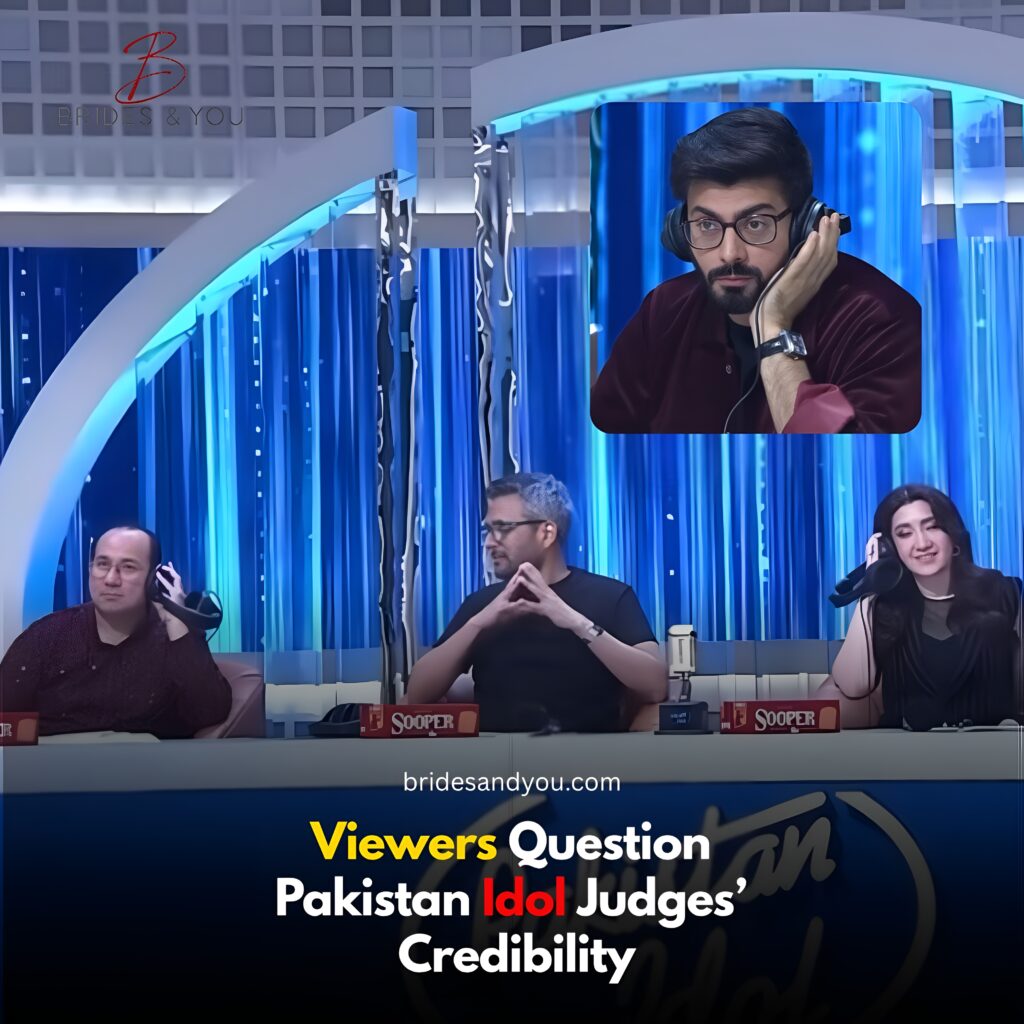Now Reading: Sajjad Ali’s Criticism of Pakistan Idol Gets Mixed Reactions
-
01
Sajjad Ali’s Criticism of Pakistan Idol Gets Mixed Reactions
Sajjad Ali’s Criticism of Pakistan Idol Gets Mixed Reactions

Pakistan’s famous musical reality show, Pakistan Idol, has once again become the talk of the town. Known for giving new singers a national platform, the show has returned with much excitement. However, this season has also invited controversy after Sajjad Ali, one of the most respected voices in Pakistan’s music industry, openly criticized the show’s repetitive song selection during auditions.
The show is currently being aired on Geo TV, Green Entertainment, and PTV Home and judged by a star-studded panel including Fawad Khan, Zeb Bangash, Rahat Fateh Ali Khan, and Bilal Maqsood. Despite the strong lineup, Sajjad Ali’s comments have raised questions about how creative and fair the show really is.
Pakistan Idol: A Platform for Aspiring Talent
Pakistan Idol first captured the nation’s attention when it aired its first season back in 2013. The show’s purpose has always been to find hidden talent across Pakistan and bring them to the forefront of the entertainment industry.
Thousands of participants from different cities take part in the auditions each year, hoping to become the next big music sensation. However, this year, viewers have noticed that many contestants are performing the same songs repeatedly, which has made the show feel a bit predictable and less exciting.
Sajjad Ali Points Out the Repetition Issue
In a recent press talk, Sajjad Ali expressed his disappointment over the repetitive song choices in Pakistan Idol. He stated,
“You must have noticed that Pakistan Idol has been repeating a few songs, which has made things monotonous. They have obtained copyrights from only a few companies, due to which their song choices are limited. The rights to our songs are not with them.”
He further explained that the producers did reach out to him regarding song rights, but both parties could not agree on the financial terms. Sajjad Ali emphasized that the issue of copyrights is limiting contestants from performing a diverse range of songs particularly those that could truly showcase their vocal range and creativity.
The Copyright Challenge in Pakistan’s Music Industry
The singer’s comments highlight a major issue within the Pakistani music industry — the complex and often restrictive copyright system. Many classic songs are owned by private companies, and acquiring their rights can be both expensive and time-consuming.
Due to this, talent shows like Pakistan Idol sometimes face limitations in offering variety. Sajjad Ali’s concern seems to be less about criticism and more about improving the industry so that young artists can have access to better opportunities.
Fans React to Sajjad Ali’s Statement
Social media quickly became divided after Sajjad Ali’s comments went viral. Some fans agreed with the singer, appreciating his honesty and acknowledging that he raised a valid point about copyright restrictions.
One fan wrote, “He is a top-notch singer of Pakistan and always speaks facts. He deserves royalties for his hard work.” Another commented, “He’s right. Music platforms need to invest in proper song rights if they want quality performances.”
However, others found Sajjad Ali’s tone a bit harsh, saying that he should have been more supportive of the young talent participating in the show. One viewer said, “They should think about Pakistan first. Why make it so hard for the youth?”
Another added, “Pakistan Idol is providing a platform for aspiring singers. Instead of criticizing, established artists should guide them.”
Pakistan Idol’s Response and the Way Forward
While the Pakistan Idol team has not officially responded to Sajjad Ali’s remarks, insiders suggest that the producers are aware of the issue and are working on expanding their music library for future episodes.
If they can secure more song rights, it will allow participants to perform a wider range of songs from classics to modern hits making the competition more vibrant and inclusive.
On the other hand, Sajjad Ali’s criticism may serve as a wake-up call for producers and the music industry at large to revisit copyright policies and create fairer opportunities for all.
Sajjad Ali: A Voice of Integrity in Music
Throughout his career, Sajjad Ali has maintained a reputation for being authentic, knowledgeable, and deeply passionate about music. Known for timeless songs like “Har Zulm” and “Lagaya Dil,” his voice carries both authority and emotion.
When someone like him speaks up, the industry tends to listen. His remarks might have sparked debate, but they also encourage a much-needed conversation about creativity, rights, and the future of music in Pakistan.
Final Thoughts
The controversy surrounding Sajjad Ali’s criticism of Pakistan Idol reflects deeper challenges in Pakistan’s entertainment landscape. While fans may have differing opinions, everyone agrees that the country’s young talent deserves better platforms, fairer opportunities, and access to a wider range of music.
If handled constructively, this debate could push the industry towards a more open, supportive, and artist-friendly future.













